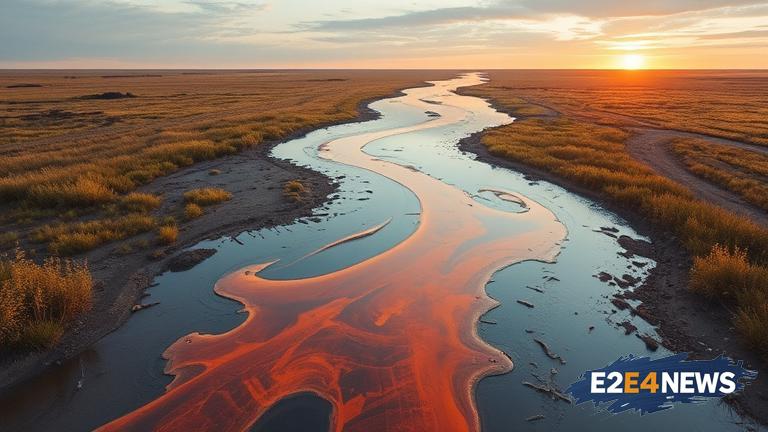A recent oil spill in North Dakota has raised concerns over the environmental impact of the state’s oil industry. The spill, which occurred at a well site in the Bakken formation, released an estimated 500 barrels of oil into the surrounding area. The incident has sparked widespread criticism of the oil industry, with many calling for increased regulation and oversight. The North Dakota Department of Environmental Quality has launched an investigation into the spill, and the company responsible, Hess Corporation, has vowed to cooperate fully. The spill is the latest in a series of environmental incidents in the state, which has become a major hub for oil production in recent years. The oil industry has brought significant economic benefits to the state, but it has also raised concerns over the impact on the environment and public health. Many residents have expressed concerns over the potential risks of oil spills, including contamination of groundwater and soil. The state’s oil industry has also been criticized for its lack of transparency and accountability, with some accusing companies of prioritizing profits over environmental protection. The North Dakota Department of Environmental Quality has faced criticism for its handling of the spill, with some arguing that the agency has been too slow to respond. The agency has defended its actions, saying that it is working to ensure that the spill is cleaned up and that the responsible parties are held accountable. The incident has also sparked a wider debate over the role of the oil industry in the state, with some calling for a moratorium on new drilling permits. Others have argued that the industry is essential to the state’s economy and that increased regulation would be unnecessary and burdensome. The spill has also raised concerns over the impact on local wildlife, with some species potentially at risk due to the contamination of their habitats. The North Dakota Game and Fish Department has launched an investigation into the potential impact on wildlife, and the results are expected to be released in the coming weeks. The incident has also sparked a discussion over the need for increased funding for environmental protection and regulation in the state. Some have argued that the state’s budget for environmental protection is inadequate, and that more resources are needed to ensure that the oil industry is operating safely and responsibly. The North Dakota Legislature has vowed to review the state’s environmental regulations and to consider new legislation to address the concerns raised by the spill. The incident has also highlighted the need for greater transparency and accountability in the oil industry, with some calling for the implementation of new technologies to monitor and track oil spills. The use of drones and other remote sensing technologies has been proposed as a potential solution to improve monitoring and response to oil spills. The incident has also raised concerns over the impact on local communities, with some residents expressing concerns over the potential risks to their health and well-being. The North Dakota Department of Health has launched an investigation into the potential health impacts of the spill, and the results are expected to be released in the coming weeks. The incident has also sparked a wider debate over the role of the oil industry in the state’s economy, with some arguing that the benefits of the industry outweigh the risks. Others have argued that the industry is a necessary evil, but that it must be regulated and monitored closely to ensure that it is operating safely and responsibly.
